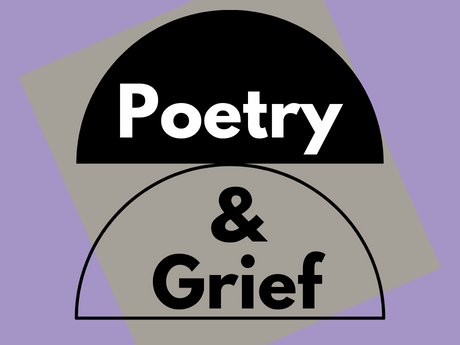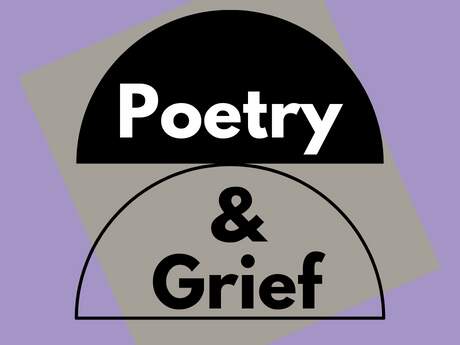Poetry & Grief
Kerri Webster on Lucie Brock-Broido’s “For a Snow Leopard in October”

For a Snow Leopard in October
Stay, little ounce, here in
Fleece and leaf with me, in the evermore
Where swans trembled in the lake around our bed of hay and morning
Came each morning like a felt cloak billowing
Across the most pale day. It was the color of a steeple disappearing
In an old Venetian sky. Or of a saint tamping the grenadine
Of his heavy robes before the Blessing of the Animals.
I’ve heard tell of men who brough Great Pyrenees, a borzoi, or
Some pocket mice, baskets of mourning doves beneath their wicker lids,
A chameleon on a leash from the Prussian circuses,
And from the farthest Caucasus, some tundra wolves in pairs.
In a meadow I had fallen
As deep in sleep as a trilobite in the red clay of the centuries.
Even now, just down our winding road, I can hear the children blanketing
Themselves to sleep in leaves from maple trees.
No bad dreams will come to them I know
Because once, in the gone-ago, I was a lynx as well, safe as a tiger-iris
In its silt on the banks of the Euphrates, as you were. Would they take
You now from me, like Leonardo’s sleeve disappearing in
The air. And when I woke I could not wake
You, little sphinx, I could not keep you here with me.
Anywhere, I could not bear to let you go. Stay here
In our clouded bed of wind and timothy with me.
Lie here with me in snow.
"For a Snow Leopard in October" from Stay, Illusion by Lucie Brock-Broido, copyright © 2013 by Lucie Brock-Broido. Used by permission of Alfred A. Knopf, an imprint of the Knopf Doubleday Publishing Group, a division of Penguin Random House LLC. All rights reserved.
Kerri Webster on Lucie Brock-Broido’s “For a Snow Leopard in October”
“Lie here with me in snow”—the devastating final line of Lucie Brock-Broido’s elegiac “For a Snow Leopard in October”—strikes me as the perfect epitaph, encapsulating with brutal frankness our fear that after death may loom a great unfathomable aloneness. The refrain “with me,” repeated three times before the final line, drives the theme of loneliness home. Too, the bed-substances named move from the idea of rest or even play—“Fleece and leaf,” “meadow,” “leaves,” “wind and timothy”—to, in that stunning final swerve, “snow,” making the closing “with me” a plea for permanent companionship, suggestive as it is of freezing. The speaker pleads and commands (the imperative tense including, after all, both), seemingly from beyond: Stay. No wonder this poem is an obsession for many poets I’ve known; it’s a haunting.
The irony is that while the poem trades in Keatsian liminality (“And when I woke I could not wake /” before the break shifts the meaning), dizzyingly moving through verb tenses, building an atemporal and aspatial irreality with “evermore,” “gone-ago,” “anywhere,” its artificing reminds us that a poem itself is an afterlife, not so much Keats’s nightingale always dying yet always (so far) replaced, but Yeats’s bird, made thing on a golden bough singing of “what is past, or passing, or to come.” The poem is where immortality is conferred or re-conferred on trilobites and Saint Francis in his grenadine robes but also on the speaker and the “little ounce” and, yes, the poet.
Of the poem’s similes, three of four tenor-vehicle pairings—“morning” and “felt cloak,” “deep sleep” and “trilobite,” “you” and Leonardo’s sleeve—liken fleeting phenomena to objects that contain more permanence, as though hoping to concretize them via comparison, as though the vehicle might transform the tenor. (The fourth simile, “lynx” as “tiger iris,” likens two things with a definite life cycle via “safe as,” the irony being that lynx and iris on a silt bank aren’t particularly safe at all, permanence gestured toward but undercut by the reader’s awareness of this).
Though I think the speaker writes post- or very near death, that’s a possibility, not a certainty. It’s hard to definitively situate speaker and “little ounce,” to say who is alive and who is dying or dead, and this seems to me fundamental to elegies: we write to the dead who were where we are now and who are where we are going, making every elegy also about our own mortality: elegy as profound act of love, yes, of profound longing, but also a voicing of fear: Stay.
There’s a canny thing that occurs when possibly the lake or possibly morning but more likely the evermore (and conceivably the referent is all of these) is/are “the color of a steeple disappearing / In an old Venetian sky. Or of a saint tamping the grenadine / Of his heavy robes before the Blessing of the Animals.” These are descriptions, not metaphors, but the nature of both descriptions (steeple, saint) confers a sort of holiness, implies that the evermore of the poem is holiness. Whether we see this as metaphor—and this is where I truly get dizzy—depends on whether we view it as the comparison of two like things or not.
Of epitaphs: so far Keats’s is famously wrong; his poems not writ in water but perhaps, we might concede, in snow, a substance akin to gerund. Which is to say that Leonardo’s sleeve—the artificed representation of that sleeve referenced in Brock-Broido’s poem—is disappearing, yes, but most definitely not disappeared; we can google it, and somewhere a gloved conservator may reach out and touch it. Gerunds, nonfinite, contain what is past, what is passing, what is to come. Snow as betweening, then. The poem abounds with such: “billowing,” “disappearing,” “tamping,” “blanketing,” “disappearing” again, the gerund-noun “Blessing,” the gerund-adjectives “winding” and “mourning,” poor dove, poor leopard, poor us. We’re all regrettably barreling toward a stupid, self-inflicted, collective end, yes. Yet if before my individual kicking-off I craft twenty-four lines as perfectly made as these—well, at least some of you might visit them after. Which would be grand, whether I’ll know you’re there or not.



